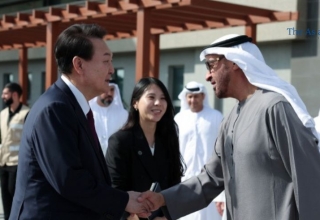
 Korea – Korea has rebounded successfully from the pandemic, owing to solid economic foundations and timely governmental actions. Despite repeated rounds of infections, economic production has reached pre-crisis levels.
Korea – Korea has rebounded successfully from the pandemic, owing to solid economic foundations and timely governmental actions. Despite repeated rounds of infections, economic production has reached pre-crisis levels.
The recovery was aided by excellent pandemic containment, which included quick vaccination last year, as well as aggressive economic policy assistance, which helped to reduce economic scarring, preserve income growth, and maintain financial stability. Because of Korea’s high level of global integration, robust foreign demand aided the recovery.
Korea’s GDP was forecast to continue to be strong this year and next, with inflation likely to gradually return to target by next year, according to a recent IMF study. However, the prognosis was already clouded by large uncertainties, with negative risks stemming mostly from pandemic-related supply chain disruptions, geopolitical uncertainty, and increasing interest rates in key advanced nations. Furthermore, increased COVID-19 infections, high household debt and real estate prices, and rising inflation posed domestic adverse threats to Korea’s economy.
Related Posts
The consequences of Russia’s invasion of Ukraine and subsequent sanctions have heightened fears of stagflation. In particular, rising commodity prices, notably for energy, have fueled inflationary pressures, even as the war’s negative effect on trade partners and recent events in China might have a substantial influence on Korean economic activity. However, Korea’s recovery looks to be holding up thus far.
Given Korea’s relatively advanced recovery and growing inflation, policy normalization is acceptable, but the pace should take into account rapidly changing global circumstances. The rate of monetary policy normalization, in particular, should be adjusted to ensure that inflation is stable and expectations are well-anchored. Fiscal policy should be generally neutral, with tailored assistance for impacted industries and vulnerable families provided as required. Macroprudential measures should continue to protect against systemic financial risks, particularly to limit the emergence of vulnerabilities as a result of a hot property market and high levels of household debt. As global threats fade, policymakers should redirect their attention to structural reform goals in order to re-energize potential development and create more inclusivity, notably as part of the Korean New Deal. Recalibrating policies to foster productivity growth and innovation is required. It also calls for temporary assistance during reforms to resolve product, service, and labor market rigidities, as well as ensuring that Korea’s human capital remains a key component of the transition process. In this context, fiscal policy should be rooted in a medium-term framework that stabilizes public debt, taking into account demographic consequences, structural transformation costs, and the need for further fiscal assistance if required.



























